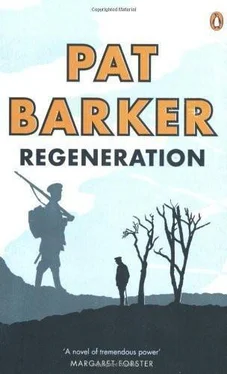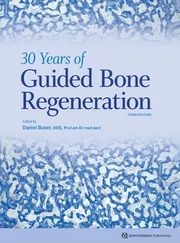The last evening round was distressing both for Rivers and the patients. He left Sassoon till last and then, remembering that he’d spent the day with Lady Ottoline Morrell and had, presumably, been exposed to a great dose of pacifist propaganda, went along to his room.
Sassoon was sitting on the floor, hands clasped around his knees, staring into the fire.
‘How was Lady Ottoline?’ Rivers said, taking the only chair. ‘In full cry?’
‘Not really. The war was hardly mentioned.’
‘Oh?’
‘No, we talked about Carpenter mainly. Homosexuality. Or rather I talked. She listened.’
Poor Lady Ottoline. ‘The war didn’t come up at all?’
‘Not today. Last night it did. I think we both knew there was no point going over that again. Do you know what she asked me? Did I realize that going back would involve killing Germans?’ He brought his anger under control. ‘Pacifists can be amazingly brutal.’
That brief flash of anger was the only emotion Sassoon had shown since skipping the Board. He seemed at times to be almost unaware of his surroundings, as if he could get through this interim period between one Board and the next only by shutting down all awareness of where he was or what was happening. And yet he was writing, and he seemed to think he was writing well. All the anger and grief now went into the poetry. He’d given up hope of influencing events. Or perhaps he’d just given up hope. At the back of Rivers’s mind was the fear that Craiglockhart had done to Sassoon what the Somme and Arras had failed to do. And if that were so, he couldn’t escape responsibility.
Sassoon roused himself. ‘You’re off first thing, aren’t you?’
‘Yes. The six o’clock.’
‘So this is goodbye, then.’
‘Only for a fortnight. I’ll be back for the Board. Meanwhile…’ He stood up. ‘Keep your head down?’
Rivers stayed overnight with the Heads and then moved into his new lodgings in Holford Road, a short walk from the RFC hospital. The floor below was occupied by a family of Belgian refugees whose demands for better food and apparent indifference to rationing irritated the landlady, Mrs Irving, beyond measure. She was inclined to stop Rivers on the stairs and complain about them at considerable length. The other lodgers were apparently more easily satisfied, and gave no grounds for complaint.
The nights were disturbed by air raids, though less by German action than by the guns on the Heath that boomed out with a sound like bombs falling. Everybody congregated in the basement during these raids, the Belgian refugees, Mrs Irving, her unmarried daughter who worked at the hospital, all the other lodgers, and the two young girls who lived in the attics and between them did the whole work of the house. As far as he could make out, they sat around, or under, the table, venturing out to the kitchen to make endless cups of cocoa. He was invited to join these parties, but always declined, saying that the air raids didn’t bother him much and he needed his sleep.
He managed to sleep through some of the raids, but on other nights, the guns made sleep impossible. He was not particularly well, but he didn’t want to take more sick leave, and he had no routine leave due to him. He spent a lot of the time with the Heads, who turned up one night and swept him off to the theatre to see the Russian ballet. They came out, still dazed with swirling light and colour, to find another raid in progress. In Leicester Square they stopped and looked up at the sky, and there was a Zeppelin floating like a strange, silver fish. Rumour had it they were piloted by women. It seemed incredible to Rivers that anybody should believe this, but he soon discovered that most people did. Mrs Irving knew it for a fact.
As soon as he started work at the hospital he became busy and, as Head had predicted, fascinated by the differences in severity of breakdown between the different branches of the RFC. Pilots, though they did indeed break down, did so less frequently and usually less severely than the men who manned observation balloons. They, floating helplessly above the battlefields, unable either to avoid attack or to defend themselves effectively against it, showed the highest incidence of breakdown of any service. Even including infantry officers. This reinforced Rivers’s view that it was prolonged strain, immobility and helplessness that did the damage, and not the sudden shocks or bizarre horrors that the patients themselves were inclined to point to as the explanation for their condition. That would help to account for the greater prevalence of anxiety neuroses and hysterical disorders in women in peacetime, since their relatively more confined lives gave them fewer opportunities of reacting to stress in active and constructive ways. Any explanation of war neurosis must account for the fact that this apparently intensely masculine life of war and danger and hardship produced in men the same disorders that women suffered from in peace.
So he had plenty to think about, and before long it was clear he would have plenty to do. Many of his old Craiglockhart patients who were living in London or the south of England had already written to ask if they could come to see him. That, by itself, would supply him with a great deal of work.
He was due back at Craiglockhart on the 25th of November. On the 24th he’d accepted an invitation to visit Queen Square. The invitation had been issued several times before and he’d always found a reason for refusing, but now that he was one of the small number of physicians in London dealing with the psycho-neuroses of war, he judged it rather more expedient than pleasant that he should accept. And so, at half past nine on the 24th November, he walked up the steps of the National Hospital. His night had been even more disturbed by the guns than usual, and he was feeling distinctly unwell. If he’d been able to cancel or postpone this visit without giving offence, he would certainly have done so. He gave his name to the receptionist. Dr Yealland was expecting him, she said. Go up.
He took the lift to the third floor. He pushed through the swing doors on to a long, empty, shining corridor, which, as he began to walk down it, seemed to elongate. He began to be afraid he was really ill. This deserted corridor in a hospital he knew to be overcrowded had something eerie about it. Uncanny. Almost the feeling his patients described, talking about their experience of the front, of No Man’s Land, that landscape apparently devoid of life that actually contained millions of men.
The swing doors at the far end of the corridor flapped open. At first Rivers was pleased, expecting to be received by some bustling nurse or VAD, but instead a creature — it hardly resembled a man — crawled through the door and began moving towards him. The figure made remarkably rapid progress for somebody so bent, so apparently deformed. His head was twisted to one side, and drawn back, the spine bent so that the chest was parallel with the legs, which themselves were bent at the knees. In addition one arm, the left, was pulled away from the body and contracted. The right hand clung to the rail, not sliding along it, but brought forward step by step, making repeated slapping sounds on the wood.
As they converged, the man turned his head, insofar as he was able to turn it, and stared up at Rivers. Probably this was dictated by no more than the curiosity patients always feel at the appearance of a doctor on wards where nothing else ever happens, but it seemed to Rivers that his expression was both sombre and malevolent. He had to drag his own gaze away. At that moment a VAD came out of a side ward and said in that bracingly jolly way of theirs, ‘Nearly ten o’clock. Let’s have you in bed.’
The morning round. Rivers wondered if he was in for that.
Читать дальше












